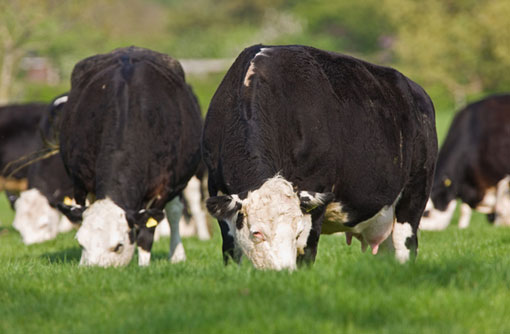Mob grazing can boost grass productivity

Canadian farmer and grazing mentor Neil Dennis of 1,000 cow fame is coming to the UK .
Mr Dennis from Saskatchewan, is to tour the UK delivering a series of workshops on high density planned grazing, sometimes more easily understood as mob grazing. He will also be joined in England by Utah rancher and holistic management educator Gregg Simmonds.
This novel method of grassland management has been extensively developed in North America, and North Yorkshire farmer David Hugill, responsible for bringing the graziers to the UK, thinks the system has plenty to offer our beef and livestock industry.
“A visit to Neil’s farm where up to 1,000 head of cattle are stocked on an acre of grass and moved four times daily is an eye opening experience,” says Mr Hugill. Mr Dennis’ main management principle is to graze ground and then let it rest and recover from grazing for a period during the growing season.
As a result the farm has doubled its stocking rate, fly problems have disappeared (thanks to keeping animals away from old manure piles) and the biodiversity of the grass sward has increased.
The reason for this graze/ rest cycle is that it allows plants time to recover from leaf defoliation and develop a deeper, more resilient root system which can absorb water during high rainfall and survive the stresses of drought.
Hertfordshire farm manager Tom Chapman is in the middle of a Nuffield Scholarship looking at mob grazing ideas and has become much enthused by the technique.
Its early days but the potential is clear, says Mr Chapman. “Allowing cattle to graze the grass and then resting it has allowed us to develop a good quality sward that the cattle can thrive on for a longer period of time.
“The key point is stocking density and stocking rate are different things and we manage land at a higher density for a shorter time. We used to be feeding silage in July as in set stocking the grass dried up but now with a deeper root system we are grazing animals for longer in the season at lower cost – and this time-controlled animal impact is a vital soil improver.”
Mr Dennis has been using this technique on his farm for a number of years now and has managed to both increase his stock holding capacity and revolutionise the health of his soil as well as decreasing mineral usage by 90%. He also runs very few external inputs on the land – beyond innovative electric fencing and watering ideas to control the paddocks.
To date only a handful of UK farmers have tried the system but early results are encouraging. “Visitors to my farm last summer remarked they have never seen my farm with so much grass, my cattle look well and the herds conception rate has increased” adds Mr Dennis.
“What we are trying to do is emulate natural systems to our advantage and allow grass to be grazed and rested like it would have been before we started set stocking fields”.
To an extent mob grazing can tend to turn a lot of conventional ideas about grassland management on their head – the goal is to allow grass to grow taller and increase the energy content of the forage and allow animals to trample a certain amount of the sward which the soil biota can digest and consequently turn into more forage. Finally this multi-faceted approach encourages deeper rooting and therefore helps improve water infiltration.
Workshops
Join EBLEX and Earth Analytics Group for an informative workshop on improving soil and forage management.
- 12 March: East Hall Farm, St Paul’s Walden, Hitchen Hertfordshire
- 13 March: Gambledown Farm, Romsey, Hampshire
- 14 March: Lezant Village Hall, Launceston, Cornwall
- 15 March: Lower Hurst Farm, Hartington, Derbys, funded by Landskills
- 15 March: Evening Meeting, Huddersfield, Yorks funded by Landskills
- 16 March: West Arrathorne Farm, Bedale, NorthYorkshire funded by Landskills
To register your free place please ring Hellen, Vickie or Sandra at EBLEX on 0870 609 1840 or 01904 771211 or email brpevents@eblex.ahdb.org.uk
For the Landskills Funded Events contact David Hugill on 07703134248
And In Wales:
- 19 March: Oriel House Hotel, St Asaph, Denbighshire – 7-30pm
- 20 March: Pasture Walk North Wales tbc
- 20 March: Nant Y Ffin Hotel, Llandissilio, Pembrokeshire – 7-30pm
- 21 March: Pasture Walk – Croft Farm, Dreenhill, Haverfordwest, Pembrokeshire – 2pm
Welsh Events sponsored by Farming Connect and Pembrokeshire Sustainable Agriculture Network.
For Welsh Events please contact Will Scale – 07971 605174 or escalio@gmail.com
